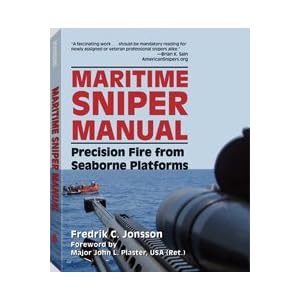“We don’t feel protected by the international navies, so we need to take matters into our own hands,” said Scott Jones, first vice president of the UAESA, the leading industry body in the nation. “There is still no vessel that has armed guards on board that has been taken. It seems to be the only way we can feel relatively certain,” he said.
![]()
Boy, chalk up another association that has come to grips with reality. Might I also add that these last couple of months, according to some of my readers that are in the know, has been nuts for maritime security companies. Business is picking up to say the least. Although I cannot say for sure how much of an increase there has been because no one is tracking it. All I can go by is what I am hearing out there.
With that said, it makes total sense that this market could be seeing a surge. And with more boats having armed security giving problems to the pirates, there will be those boats without security that will soon become the targets of greedy and dangerous pirates. It is the law of the jungle, and predators will always seek the weakest and easiest prey. Who knows, and this is all just speculation on this particular niche of private security. (we are seeing pirates attack smaller yachts, and violently, which could be considered ‘weaker prey’)
Also, as a cautionary tale, I think it is important to note the similar evolution of the PSC industry in today’s current war zones. In the beginning stages, there are always problems. I suspect as this thing grows bigger, the problems will show their ugly head and will be dealt with accordingly. Although we can be proactive out there and try to apply Jundism and the lessons learned from war zone contracting to this quickly growing maritime security market. All the skeptical eyes of the world will be on the man or woman on the boats with the guns–do well….
Pirates will also be studying the armed security of boats out there, and planning ways of defeating it. Because as the ‘unarmed’ prey diminishes, the hungry predators will start targeting weaker ‘armed’ prey. So if you are a shipping company that has deemed arming your boat with one Glock pistol, and think that is sufficient for ‘arming’ the vessel, you are severely wrong.
‘Know yourself, know your enemy’ as Sun Tzu says. Shipping companies must strive to put in place teams on their vessels that are competent, credible and well armed, that can defeat whatever the latest evolution of pirate weaponry, tactics, and strategies are. –Matt
![]()
Pirates could face armed seafarers
By Carol Huang
February 28, 2011
The UAE Shipping Association (UAESA) has reversed course to back the use of private security guards aboard commercial vessels as the best way to combat increasingly aggressive Somali pirates.
The U-turn comes as the shipping industry worldwide reconsiders its longtime opposition to carrying weapons at sea. Over the past year, pirate presence has spread across the Indian Ocean. Ransom demands are rising, and hostages are being held captive longer.
Last week, pirates killed four American yachtsmen whom they had taken hostage.
“We don’t feel protected by the international navies, so we need to take matters into our own hands,” said Scott Jones, first vice president of the UAESA, the leading industry body in the nation. “There is still no vessel that has armed guards on board that has been taken. It seems to be the only way we can feel relatively certain,” he said.
That stance would hold for as long as the problem persisted, the organisation said in an announcement earlier this month.
“Until an international solution resolving the governance of Somalia is accomplished, the UAESA will support the stationing of trained professional armed security aboard vessels.”
Dubai port authorities have implemented “clearance procedures” to allow armed guards, it said.
Since many ports around the world ban weapons, many authorities have had to amend or clarify their policies to allow private security escorts to enter.
